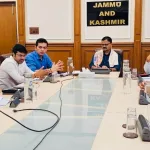According to the reports of the largest study, active monitoring of prostate cancer has the same high survival rates after 15 years as radiotherapy or surgery.
The latest findings from the ProtecT trial, led by the Universities of Oxford and Bristol, are presented today at the European Association of Urology (EAU) Congress in Milan and published in the New England Journal of Medicine. The trial was funded by the National Institute for Health and Care Research (NIHR).
Although men on active monitoring – which involves regular tests to check on the cancer – were more likely to see it progress or spread than those receiving radiotherapy or surgery, this didn’t reduce their likelihood of survival.
The trial also found that the negative impacts of radiotherapy and surgery on urinary and sexual function persist much longer than previously thought – for up to 12 years.
The findings show that treatment decisions following diagnosis for low and intermediate risk localised prostate cancer do not need to be rushed, according to lead investigator, Professor Freddie Hamdy from the University of Oxford.
“It’s clear that, unlike many other cancers, a diagnosis of prostate cancer should not be a cause for panic or rushed decision making,” he said. “Patients and clinicians can and should take their time to weigh up the benefits and possible harms of different treatments in the knowledge that this will not adversely affect their survival.”
The trial was conducted in nine UK centres and is the longest running study of its kind. It is the first to fully evaluate three major treatment options: active monitoring, surgery (radical prostatectomy) and radiotherapy with hormones for men with localised prostate cancer.
Between 1999 and 2009, 1,643 men aged 50-69 years across the UK, who were diagnosed with localised prostate cancer after a PSA blood test, agreed to be randomised to active monitoring (545), radical prostatectomy (553) or radical radiotherapy (545). The research team followed the men over an average of 15 years, to measure mortality rates, cancer progression and spread, and the impact of treatments on quality of life.
They found that around 97% of the men diagnosed with prostate cancer survived 15 years after diagnosis, irrespective of which treatment they received. Around a quarter of the men on active monitoring had still not had any invasive treatment for their cancer after 15 years.
Patients from all three groups reported similar overall quality of life, in terms of their general mental and physical health. But the negative effects of surgery or radiotherapy on urinary, bowel and sexual function were found to persist much longer than previously thought.
In earlier findings released in 2016, the researchers found that, after ten years follow up, men whose cancer was being actively monitored were twice as likely to see it progress or metastasise than those in the other groups. The assumption had been that this might lead to a lower survival rate for men on active monitoring over a longer time period. However, the results from the 15-year follow up show that this isn’t the case and that survival rates remain similarly high across all groups.
Professor Freddie Hamdy said: “This is very good news. Most men with localised prostate cancer are likely to live for a long time, whether or not they receive invasive treatment and whether or not their disease has spread, so a quick decision for treatment is not necessary and could cause harm.”
“It’s also now clear that a small group of men with aggressive disease are unable to benefit from any of the current treatments, however early these are given. We need to both improve our ability to identify these cases and our ability to treat them.”
Co-investigator, Professor Jenny Donovan, from the University of Bristol, said: “Patients and doctors now have the necessary information on the long-lasting side effects of treatments to better understand the trade-offs between their benefits and harms. Survival no longer needs to be considered when deciding on treatment – as that’s the same for all three options. Now men diagnosed with localised prostate cancer can use their own values and priorities when making the difficult decisions about which treatment to choose.”
The trial has also highlighted flaws in current methods to predict which prostate cancers are likely to grow quickly and spread. Initially, all those recruited to the trial were diagnosed with localised cancer and 77% of them were deemed low risk. A reassessment using more modern methods showed that a far greater number would now be considered
intermediate-risk – and in around 30% of men, the disease had spread beyond the prostate already. This means that the participants in the study had higher grade and stage disease than was thought initially. Despite this finding, mortality was still low, even when men with intermediate disease delayed or did not have radical treatment. Some of the men who subsequently died of their prostate cancer had been assessed as low risk at diagnosis, which the researchers highlight as an issue of concern.
Professor Peter Albers, chair of the EAU’s Scientific Congress Office and a urologist at Dusseldorf University, said: “The fact that the greater progression of disease seen under active monitoring didn’t translate into higher mortality will be both surprising and encouraging to urologists and patients. Active monitoring and biopsy protocols today are much more advanced than at the time this trial was conducted, so it’s possible we could improve on these outcomes still further. It’s an important message for patients that delaying treatment is safe, especially as that means delaying side effects as well.”
“But it’s also clear that we still don’t know enough about the biology of this disease to determine which cancers will be the most aggressive and more research on this is urgently needed.” (ANI)





